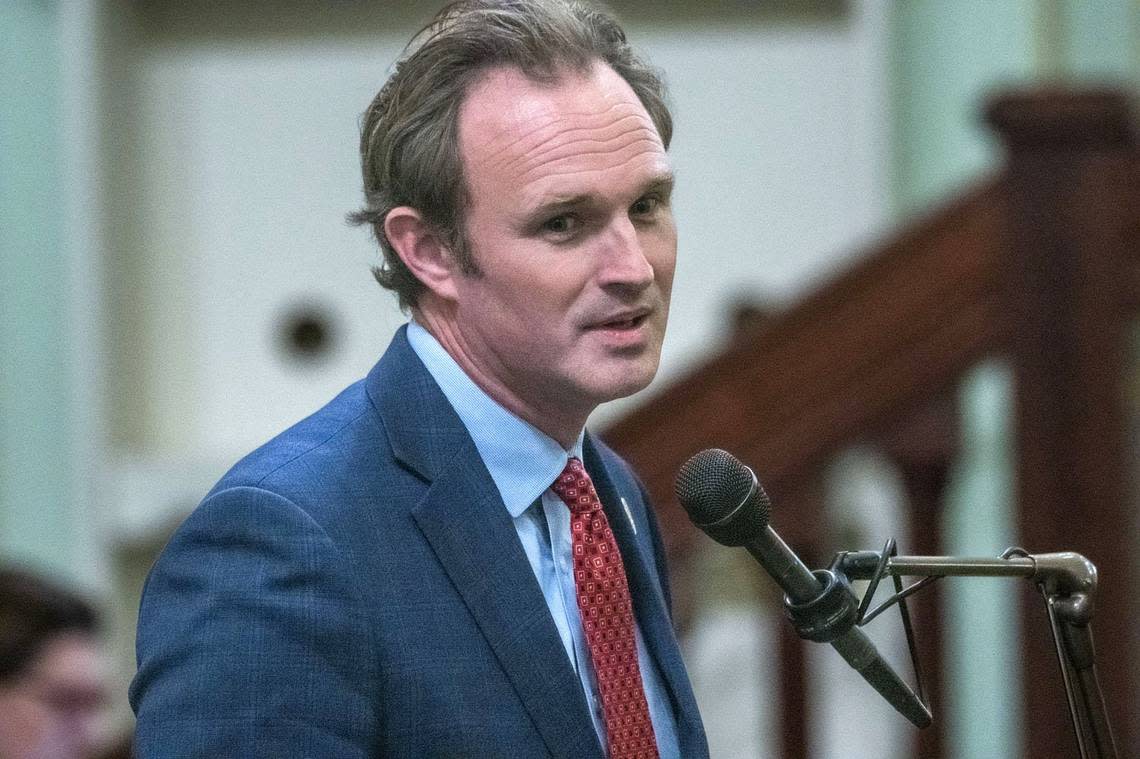California GOP leader suggests homeless people, Democrats are to blame for everything | Opinion

California Assemblyman James Gallagher wants you to believe that homeless people may be responsible for the fire that damaged the I-10 overpass in Los Angeles, that Democrats are responsible for enabling them and that all liberals despise anyone who uses a car.
“Democrats lamenting the I-10 closure likely helped cause the problem by their homeless enablement strategy,” the California Assembly Minority Leader posted on X, formerly known as Twitter, on Tuesday, just a few days after an inferno of yet-unknown-origins severely damaged one of the city’s major traffic arterials.
In a city of more than 6.5 million licensed drivers, according to the LA Almanac, the incident — that thankfully, claimed no lives — has created traffic snarls of unimaginable magnitude over the last week and resulted in numerous small business owners losing their livelihoods.
Opinion
But never mind the fact that Gallagher’s constituency is more than 350 miles away, nor the fact that California Gov. Gavin Newsom has said publicly that the fire was likely caused by arson, or that L.A. Mayor Karen Bass said “there is no reason to assume that the reason this fire happened was because there were unhoused individuals nearby.” But facts rarely fit Gallagher’s narrative.
This minority leader throws petty lobs from his keyboard like an amateur cook throws spaghetti at the wall, praying something will stick. It doesn’t have to be based in fact, as long as his voters and followers believe it — and that’s because keeping them angry keeps him in office.
“They also despise all those lanes,” Gallagher added for good measure. “What commuters are experiencing will be the norm under (Democrats’) road diet plan. They want you out of that car. #CADeservesBetter.”
On that, I’ll concede Gallagher has a point. Because anyone who gives the barest amount of acknowledgment toward the world’s climate crisis knows that traffic from single-occupancy vehicles is the leading contributor to greenhouse gas emissions, and rightfully should “despise all those lanes.”
If there is one place on the planet the proves that adding lanes doesn’t solve traffic problem, it is Southern California. Generations of sprawls and interstates have created a greenhouse gas machine of catastrophic proportions.
So yes, you should get out of your car, and if you can’t do that because our society and government have conspired to make it nearly impossible to get anywhere without personal transportation, then at least support policies that provide options outside of low-occupancy automobiles. I’d like to think Gallagher would be more inclined to support those policies himself if he wasn’t indebted to transportation lobbies for more than $100,000 since he took office, according to CalMatters.
What Gallagher and those of his ilk don’t want you to know is that Southern California -- most of America did, really -- had a robust mass transit system less than 100 years ago, with buses, streetcars and trolleys — options that didn’t include passenger cars.
The famed Pacific Electric railway system once had a route map that rivaled what exists today, but it was slowly taken out of business by champions of the automobile.
In 1949, Firestone Tire, Standard Oil of California, Phillips Petroleum, General Motors and Mack Trucks were convicted of conspiring to monopolize the sale of buses to local transit companies, a decision upheld by the Seventh Circuit Court of Appeals in 1951 and for which GM was fined a paltry $5,000, but the companies were acquitted of conspiring to monopolize the transit industry as a whole. The case is popularly believed to have led to the end of mass transit that pushed the U.S. into automobile dependency — though scholars remain divided on the ultimate cause of the streetcars’ demise, and certainly, the trend was moving in that direction long before thanks to the rise of the automobile. But the case created long-lasting suspicions in the public eye, including in Los Angeles where ridership of the city’s “red cars” peaked in the 1940s at 300,000 rides per day and 100 million rides annually.
Now, more than 70 years later, GM has a net worth of $38 billion and Phillips Petroleum is worth approximately $49 billion. Meanwhile, California critics rage about today’s price tag of the 171-mile initial segment of the High-Speed Rail Project, at a cool $35 billion, according to the LA Times. That’s a hefty price tag to be sure, but it’s worth every penny if it keeps traffic and climate change at bay.
So yes assemblyman, count me among the growing number of Californians who prefer driving less and spending our precious transportation dollars on smarter transit options rather than more freeway lanes.
I want Sacramentans and Angelenos and everyone else in this state to have a real mass transit option instead of snarling up freeways with construction and refurbishment for years on end.
Bring back mass transit as a viable option for all Californians so that shutting down one freeway like the I-10 can’t cause such mayhem. We can pay for it by closing some of the climate-related tax loopholes Gallagher and his friends have so helpfully passed for companies like Firestone, GM and Phillips.
Gallagher’s right that California deserves better than that. I just wish we had legislators with the foresight to make those solutions happen, instead of spending their time peddling damaging and petty insinuations about the homeless online.


